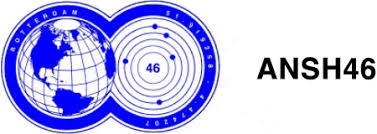Share Purchase Agreement: Everything You Need to Know
What is a Share Purchase Agreement in the Netherlands?
A Share Purchase Agreement (SPA) is an important document when selling shares in a company. In the Netherlands, this is also referred to as a 'koopovereenkomst van aandelen'. It is a contract between the seller and the buyer of the shares. This contract outlines all agreements about the sale. For example, it includes how many shares are being sold and at what price. It also specifies the rights and obligations of both parties. An SPA is very crucial during company acquisitions. It ensures that everything is clear and that there are no misunderstandings.
Get your employee participation plan. Fixed price, arranged instantly.
- Transparent fixed price – no surprises afterwards
- Personalized plan, fully tailored to your company
- Ready-to-use Word or PDF template: buy once, use unlimited for all your employees
































































The Significance of a Share Purchase Agreement in Acquisitions
In an acquisition, the SPA plays a major role. It is more than just a contract for the sale of shares. The SPA protects both the buyer and the seller. The contract includes warranties and indemnities. These are promises made by the seller concerning the condition of the company. If these promises turn out to be untrue, the buyer can claim compensation. The SPA also regulates how the acquisition will take place. It specifies when the shares will be transferred and when payment will occur. This way, both parties know precisely what to expect.
What Does the Acronym SPA Mean Legally?
SPA stands for Share Purchase Agreement. In Dutch, this is often translated as 'koopovereenkomst van aandelen'. The acronym SPA is widely used in the business world and by legal professionals. When someone talks about an SPA, they are usually referring to this specific type of contract. It is important to note that SPA can have other meanings. In different contexts, it could stand for 'Sales and Purchase Agreement'. However, in the context of share transactions, SPA always means Share Purchase Agreement.
What is an SPA Legally Speaking?
Legally, an SPA is a binding contract between two or more parties. It is an agreement that creates rights and obligations for all involved. The SPA contains all the important details of the share transaction. This includes the identification of the parties, a description of the shares, the purchase price, and payment terms. It often also includes conditions that must be met before the deal is finalized, representations and warranties, and agreements on indemnities. An SPA is a complex legal document that is usually drafted by specialized lawyers.
The Importance of an SPA in an Acquisition
In an acquisition, the SPA is the central document. It regulates all aspects of the share transfer. The SPA not only describes the sale itself but also outlines what needs to happen before and after the sale. For instance, it may state that the buyer is allowed to research the company first (due diligence). It can also contain arrangements about what happens if problems arise after the acquisition. The SPA thus protects the interests of both the buyer and the seller. It ensures that the acquisition proceeds smoothly and that both parties know what to expect.
Key Elements of a Share Purchase Agreement
A well-drafted SPA contains several important elements. First, the identification of the parties: who is the buyer and who is the seller? Second, a clear description of the shares that are being sold. Third, the purchase price and how and when it must be paid. Additionally, an SPA often contains conditions that must be fulfilled before the deal becomes final. It also includes representations and warranties from the seller regarding the condition of the company. Finally, an SPA typically contains agreements regarding indemnities. These are promises to protect the other party against certain risks.
The Process of a Share Purchase Agreement
Creating an SPA is a process that consists of several steps. It usually starts with due diligence, where the buyer investigates the company. This is followed by negotiations about the deal terms. Next, the contract is drafted, usually by lawyers. Once both parties agree, the SPA is signed. The final step is the 'closing', during which the shares are officially transferred and payment is made. This entire process can take weeks or even months, depending on the complexity of the deal.
Conclusion: The Importance of a Good Share Purchase Agreement
A well-prepared SPA is crucial when selling shares. It provides clarity and protects the interests of all parties involved. An SPA helps distribute risks and ensures a smooth transaction. Therefore, it is essential to seek expert advice when drafting an SPA. Lawyers, accountants, and financial advisors can assist in this process. With a good SPA, both parties can enter the share transaction with confidence.
Which participation plan suits your company?
Request a free intake. In 30 minutes we discuss your needs and determine which plan suits your company.
Selling a Business to a Partner: What Should You Consider?
Selling a business to a partner is a solution for co-shareholders who wish to exit the business. There are several factors to consider.
Shareholder Buyout or Exclusion: How Does It Work?
What should you consider when buying out or excluding a shareholder or partner? We explain.